Worsening Recession in Nigeria

On September 8, 2016, I wrote about the state of the economy under the former President of Nigeria, Muhammadu Buhari.
Empowering Youth Through Education and Employment
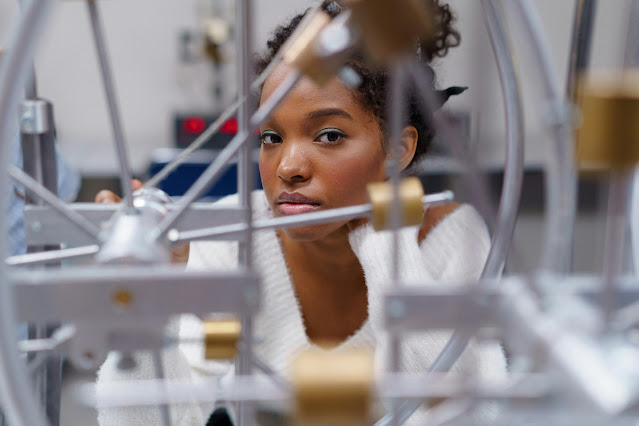
Youth represents the future of our society. Their energy, creativity, and innovation hold the key to addressing the complex challenges we face.
Building a World of Equal Opportunities

Assuring equal opportunities and minimizing outcome disparities are essential cornerstones in the endeavor to create a just and equitable society
Combating Poverty Amidst Economic Challenges in Nigeria
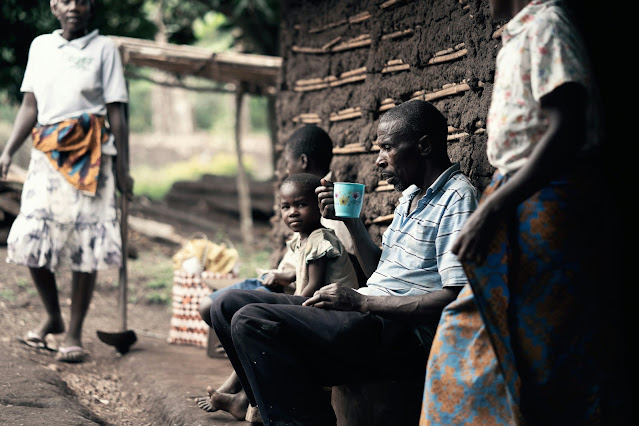
Despite being blessed with abundant natural resources and a rich culture, millions of Nigerians continue to languish in poverty
Accelerating Global Sanitation
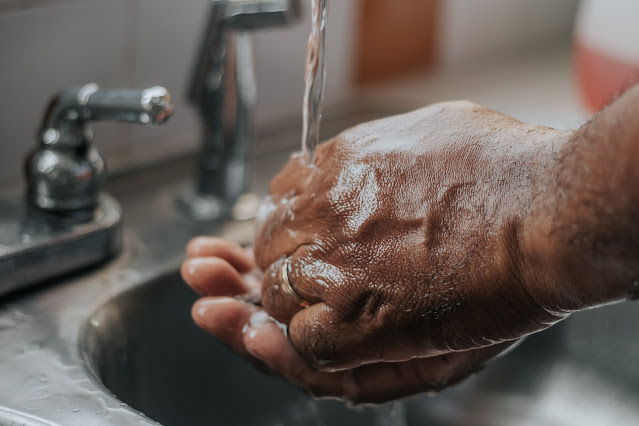
World Toilet Day is a global call to action, pushing nations to collaborate and share insights in order to collectively accelerate progress.
Learning for Peace

Imagine a world not too distant from our own, where the shadows of conflict cast a pall over communities. Amid this turbulence,
Inspiring Inclusion
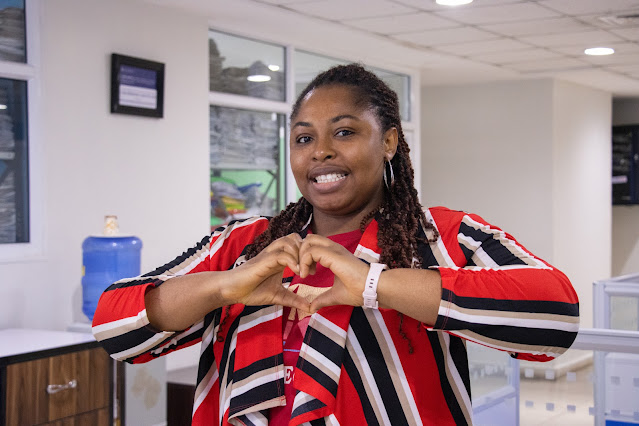
Let us clap for women, for their resilience, courage, and the indelible mark they have left on the pages of history. International Women’s Day, celebrated every March 8, is a resounding applause for the achievements, struggles, and progress of women worldwide. The genesis of International Women’s Day can be found in the women’s suffrage movement, a time when the world first began to deliberately record a groundswell of advocacy for equality. The inaugural National Women’s Day took place in the United States on February 28, 1909, organized by the socialist movement. Building on this momentum, the International Women’s Conference proposed an international day of celebration a year later. From these humble beginnings emerged a global tradition dedicated to recognizing the invaluable contributions of women and acknowledging the challenges they continue to face. International Women’s Day not only serves as a testament to the progress made but also as a rallying cry for the ongoing pursuit of gender equality. Historical Context Marginalized and displaced women in Africa face multifaceted challenges that demand attention and concerted efforts for sustainable solutions. Across the continent, numerous factors contribute to the vulnerability of these women, exacerbating their already complex circumstances. In conflict-ridden regions, women often find themselves disproportionately affected, becoming victims of violence, displacement, and exploitation. Displacement, whether due to conflict, natural disasters, or economic hardships, disrupts the stability of communities and forces women into precarious situations. This situation is particularly acute for marginalized groups, including ethnic minorities and indigenous communities, who may face additional layers of discrimination. Moreover, access to education and healthcare remains a persistent issue for marginalized women in many African countries, limiting their opportunities for personal and economic development. Empowering these women requires addressing systemic issues, fostering inclusivity, and creating avenues for education and skill development tailored to their needs. Women Inspiring Inclusion Wangari Maathai – Kenya: A Nobel Peace Prize laureate, Wangari founded the Green Belt Movement, empowering women through environmental conservation. The movement not only contributed to sustainable development but also elevated women’s roles in community leadership. Ellen Johnson Sirleaf – Liberia: She made history as Africa’s first female democratically elected head of state. Her presidency in Liberia marked a significant breakthrough, inspiring a new era of leadership for women in politics. Chimamanda Ngozi Adichie – Nigeria: She is a renowned author and feminist, who has used her literary works to challenge stereotypes and advocate for gender equality. Her impactful writings contribute to reshaping perceptions and inspiring dialogue on inclusivity. Oulimata Sarr – Senegal: Sarr, a passionate advocate, is the Regional Director for UN Women in West and Central Africa. Her work focuses on advancing gender equality, and she has been instrumental in promoting women’s rights and inclusion in the region. Malala Yousafzai – Pakistan (with African advocacy): While originally from Pakistan, Malala Yousafzai’s global advocacy for girls’ education extends to Africa. Through the Malala Fund, she has supported initiatives in countries like Nigeria and Kenya, amplifying the importance of education as a tool for inclusion. Dlamini-Zuma – South Africa: Nkosazana, former Chairperson of the African Union Commission, has been a key figure in continental diplomacy. Her leadership exemplifies the increasing recognition of women in high-ranking political roles, paving the way for more inclusive governance. Afua Hirsch – Ghana/UK: She is a British-Ghanaian author and broadcaster who uses her platform to address issues of race, identity, and gender. Her advocacy contributes to a more inclusive dialogue, fostering understanding and collaboration across diverse communities. Movements Inspiring Inclusion #BringBackOurGirls – Nigeria: Originating in Nigeria, this movement gained international attention, advocating for the safe return of kidnapped school girls. It showcased the power of activism in mobilizing communities and shedding light on issues affecting women and girls. Women of Zimbabwe Arise (WOZA) – Zimbabwe: This is a movement that empowers women to address socio-economic and political challenges. Through peaceful protests, it has demonstrated the potential of collective action in fostering inclusivity and advocating for change. #TotalShutdown – South Africa: This movement, which began in South Africa, brought attention to gender-based violence and femicide. Activists organized marches and campaigns, igniting a nationwide conversation and compelling authorities to address the pressing issue. Limitations to Inspiring Inclusion: Cultural Barriers: Deep-rooted cultural norms and traditions can pose challenges to inspiring inclusion. Resistance to change within communities may impede the progress of initiatives aimed at empowering women and promoting inclusivity. Limited Access to Resources: Many community movements face resource constraints, hindering their ability to scale impactful initiatives. Limited funding, technology, and educational resources can limit the reach and sustainability of inclusion efforts. Political Instability: In regions with political instability, gender equality organizations may face increased challenges. Repression, lack of governmental support, and security concerns can hamper the effectiveness of initiatives promoting gender equality. Lack of Legal Protections: In some areas, the absence or inadequacy of legal protections for women’s rights hinders progress. Insufficient laws addressing gender discrimination and violence create an environment where inclusive efforts face resistance and setbacks. Resistance to Change: Resistance from individuals, communities, or institutions unwilling to embrace inclusivity poses a significant limitation. Overcoming entrenched attitudes and fostering a mindset shift can be a prolonged and challenging process. Future Outlooks for Inspiring Inclusion: Technology as an Enabler: Continued advancements in technology offer opportunities for greater inclusion. Digital platforms can amplify diverse voices, provide educational resources, and facilitate connections that bridge geographical and cultural gaps. Intersectional Approaches: Embracing intersectionality will be crucial for a more comprehensive approach to inclusion. Recognizing the interconnected nature of various identities, including gender, race, and socio-economic factors, ensures that initiatives address the unique challenges faced by diverse groups. Youth Engagement: The active involvement of younger generations is a promising avenue for inspiring inclusion. Empowering youth through education, mentorship, and leadership opportunities can foster a more inclusive mindset that will shape the future. Social Responsibility (SR): Increasing corporate commitments to social responsibility can drive positive change. Companies adopting
International Day for the Girl Child
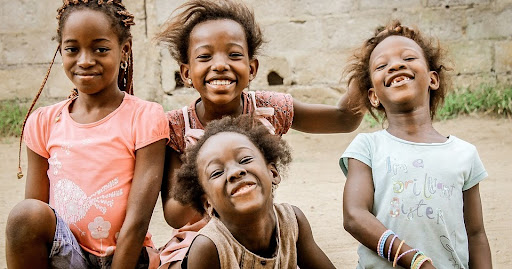
Carefree Girls: What we aspire for ever girl in the world. Image: Unsplash. Today, SHADES OF US joins the world in commemorating the INTERNATIONAL DAY OF THE GIRL! We believe EVERY GIRL deserves the following; 1. Equal Access To Basic Human Rights; 2. Equal Access To Education; 3. Equal Access To Proper Health Care; 4. Equal Pay For Same Quality Or Quantity Of Work/Job; 5. Equal Right To Vote And Be Vote For And To Be In Leadership Positions Without Intimidation; 6. Equal Access To Opportunities; 7. Equal Access To Inheritance; 8. Right To Choose Whom To Marry And if/when To Marry; 9. Protection From Rape, Pedophilia, Domestic Violence Or Abuse, Emotional Abuse, Patriarchy And Misogyny; 10. Protection From Harmful Cultural And Religious Practices Like Female Genital Mutilation, Public Flogging For Perceived Wrongs Etc; 11. Equal Access to Digital Rights and Protection from Digital Gender Based Violence. With this in mind, we agree with this year’s theme for the International Day of the Girl Child as put out by the United Nations. If girls progress in all the spheres mentioned above, the sustainable development goals will progress and we will enjoy a better world. Add your voice today! What can YOU do to make girls progress?
Ending Violence Against Women
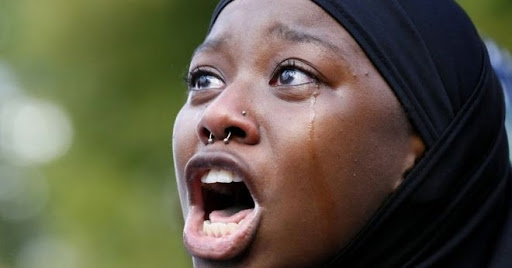
Image Credit: BBC – AFRICA’S A COUNTRY There is a concerted effort to keep women ‘in their place in society’. It doesn’t matter if it is in the seeming free societies of the Europe, Australia, America or South East Asia; the strict societies of the Middle East; the budding developments of Africa; or the backwater towns of each of these regions. The common factor is that society has carved out a place for women and girls and when they refuse to stay in ‘their lane’, they are most often met with violence. Even worse than that is the number of women who stay in ‘their place’ and still suffer the debilitating effects of violence; domestic abuse, rape, female genital mutilation, overbearingly hard labor, child marriage, improper healthcare leading to extremely painful childbirth, maternal mortality and more. Violence against women has become a disease that has been permitted to stay; a disease that is fueled by patriarchy, misogyny, bigotry and the pervading view that women are less than men. Since the dawn of time, many women have accepted their lot in life and have never questioned the status quo. When some women stand up against the injustices that society metes out to them, they are met with resistance from men, which is expected, and from women too, which is just sad. We admit that men are not the only proponents of patriarchy and the irony isn’t lost on anyone. This means that in ending violence against women, the mandate has to go back to women. Women have to be taught that; 1. We are human beings first and thus, equal to men. We are not by nature of our gender less than men; be it physically, emotionally, mentally or psychologically. Some of our physiology may be different but we are inherently equal; 2. The ONLY thing a man can do that a woman CANNOT do is provide sperm. In like manner, the ONLY thing women can do that men CANNOT do is carry a child from fertilization to term and produce milk to suckle the child. These two things are purely physiological; 3. Women are emotional beings who are logical too. Just as men are. It is pure fallacy to think that women are ONLY emotional and men ONLY logical. This ruse has been used to keep women in ‘their place’ when it comes to leadership, governance, family direction and the likes; 4. Women CAN and WILL do any and everything they set their minds to and shouldn’t believe otherwise. She can be an astrophysicist or a housewife. Women have the brain capacity to do it all; 5. Women are not to be corrected with physical abuse. There is no cause – just or otherwise – for hitting a woman. When she does wrong, she should be told she has done wrong and allowed to learn from her mistakes. Flogging, beating, slapping, cutting, hitting or punching her is NOT ACCEPTABLE! Under no circumstance is spousal abuse right; 6. It is not a woman’s fault that she is raped or sexually assaulted and abused. It is the perpetrator’s fault. The entire blame lies with the abuser. A woman does not invite rape by dressing in a certain way, or by being on the bus alone, or by wearing make-up, or by putting pictures on her social media platforms, or by walking home in the dark, or by hanging out with that male friend, or by refusing her husband sex or by trusting that uncle (or brother, father, family friend, teacher or anyone she knows) and a woman definitely doesn’t invite rape by having her own opinions and standing for them; 7. Women have every right to have and hold their own opinions, whether similar or vastly different from popular norms, without fear of harassment and abuse; 8. Women have a right to inheritance and ownership of property without being harassed by male family members or in-laws. The home wives live in with their husbands and children is as much theirs as it is their spouses. No one has the right to evict them from their homes in the event of the demise of their husbands. Adding to that, women are not to be treated in barbaric and unfair manner to prove that they are not culpable in their husband’s death. People die! deal with it; 9. No woman should have to face ANY FORM of female genital mutilation. Every organ on the body has its use and function and beyond that, it is not beneficial to any woman to have part of or all of her external genitalia removed in the guise of enforcing sexual purity. Female genital mutilation is a totally unhealthy, irrelevant and an unnecessary procedure and must be stopped globally; 10. Every woman is as sexual a being as men are. A woman’s urges and desires does not make her a ‘whore’, ‘prostitute’ or even loose. If a woman who chooses sexual freedom is to be labelled, men who do same should be labelled too. The wanton double standards have to come to an end! Some women, like some men, have higher libido than others and THAT IS OKAY! A woman has the right to explore her sexuality without fear of being labelled or worse, attacked. She has the right to make her own choices of chastity or sexual freedom without being forced to tow a line; 11. Women ARE NOT PROPERTY! They are not to be bought and sold like goods in the open market; whether it is for marriage or for forced prostitution. A woman is a full, living, breathing person and selling her not only demeans her humanity, it speaks of character so vile it has to be purged. No woman should be a slave to anyone and; 12. EVERY WOMAN is entitled to proper healthcare from birth until death. She shouldn’t have to die from diseases or childbirth because her family or spouse do not believe in modern medicine or the importance of hospitals.
#JusticeForChisomAnekwe: WHY YOU NEED TO JOIN THE CAMPAIGN
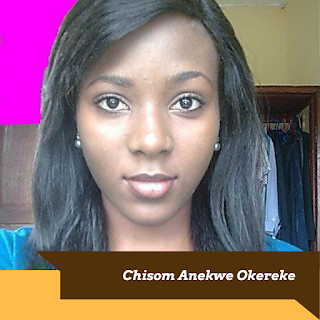
I was scrolling through my Facebook timeline and happened on this story by Milly Milly. This is Chisom Anekwe (nee Okereke), a young, vivacious, graceful, kind-hearted and intelligent woman who had devoted her life to helping indigent kids and giving their lives a meaning. She’s an alumna of LEAP Africa. Two weeks ago, precisely April 30th 2017, Chisom died under questionable circumstances at Magodo Specialist Hospital while trying to birth her third offspring. We believe strongly that the authorities need to ensure that lives are taken sacred in hospitals like Magodo Specialist Hospital where such avoidable deaths are recorded. Chisom was admitted in the hospital four days before she got into labour. She had previously been diagnosed of high blood pressure during the course of the pregnancy. She already had two beautiful daughters birthed in the same hospital and was there to birth her third child, a son. While at the hospital, no one attended to her when she needed the help to be delivered of the long awaited baby. She was left for hours in labour. This happened until her husband created a scene, which eventually caused the doctors to go to her ward and on inspection they found out that the baby had struggled and died. The husband at this point requested for a CS which he paid for and even signed the consent form presented by the hospital. He was then tricked out of the room to go prepare for blood transfusion and on getting back, he found out that the doctors had induced the wife and delivered the dead baby without operation not minding that the CS procedure had been paid for. This was also without his consent. During the process of delivering the baby, the uterus got ruptured and the doctors left her like that, no further attendance still. Shortly after, the husband noticed she was swelling up in her stomach area and called the attention of the doctors who said they were getting ready for a surgery, a preparation that took longer than usual. After waiting in vain for the surgical team, the frustrated husband went furiously to the reception to demand why they were wasting time only to discover the doctor had sneaked out of the hospital under funny pretences. At this point he got other hospital staff to wheel her out of the hospital and in that process Chisom died! This is the story of most young women who die while giving birth as a result of the callousness, ignorance and carelessness of inexperienced doctors. In this era, we shouldn’t be talking about Child and Maternal Mortality especially when it can be avoided. This could have been avoided but it wasn’t and now Chisom Jane Anekwe is a victim and has been added to the statistics. We demand; 1. That Magodo Specialist Hospital, Shangisha, Lagos, be investigated for their actions and the subsequent death of Chisom. 2. That both the Nigerian Medical Association NMA and the Medical and Dentist Council of Nigeria, MDCN ensure that supposed Specialist Hospitals who claim to have a resident Gynecologist are verified. 3. That there be justice for Chisom Okereke Anekwe! #SaveTheNextVICTIM #Justice4Chisom #Fight4OurDaughters Cc: Ihunegbo Ikechukwu Moses This hurt me so bad when I read it. There are lot of questions that ran through my head while reading. Questions like; 1. Why no one attended to a woman who had pregnancy induced high blood pressure? If she was admitted four days before she went into labor, didn’t that mean her impending birth was high risk?; 2. Why the husband had to cause a scene before the Magodo Specialist hospital staff deemed it fit to do their jobs?; 3. Was the negligence the cause of the baby’s death? If so, shouldn’t the hospital be brought to book for TWO deaths?; 4. If the request for a caesarean section by the husband was considered unnecessary or out of his area of expertise, why did the doctor acquiesce and have the hospital collect his money?; 5. Is uterine rupture a real thing? The answer is yes! So if that happened to Chisom, why was she left unattended?; 6. Why did the doctor run if he done his job as ethically and professionally as he should have? While I am cautious about calling out and blaming doctors, especially because I don’t know what extenuating circumstances precede their decisions, I think this doctor and the staff on duty were negligent on many grounds. This story is not unusual as many of our hospitals – public and private – are hubs of pain infliction instead of the other way round. Our doctors are overworked and tired, nurses are apathetic and in many cases, downright cruel, and other staff seem immune to the suffering of the sick. A life was lost because we run systems that allow incompetence, negligence and apathy for people’s suffering. Chisom is dead as a result of this failing system but we can prevent the next case of death-by-malfeasance. There is a campaign going to now seeking justice for Chisom and we can be a part of it. Join the campaign here and help prevent another senseless death of that mother, sister, wife, cousin, aunt, niece, friend, colleague or neighbor. We pray that Chisom’s family finds strength in this trying time. And beyond that, what needs to be done to improve our health sector so there isn’t a continued waste of Nigerian lives?

